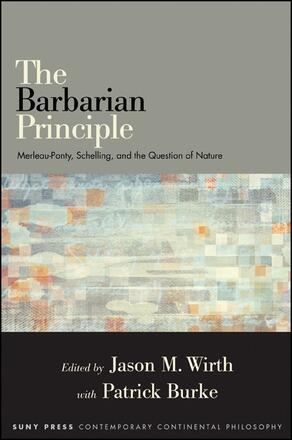
The Barbarian Principle
Merleau-Ponty, Schelling, and the Question of Nature
Alternative formats available from:
Essays exploring a rich intersection between phenomenology and idealism with contemporary relevance.
Description
Toward the end of his life, Maurice Merleau-Ponty made a striking retrieval of F. W. J. Schelling's philosophy of nature. The Barbarian Principle explores the relationship between these two thinkers on this topic, opening up a dialogue with contemporary philosophical and ecological significance that will be of special interest to philosophers working in phenomenology and German idealism.
Jason M. Wirth is Professor of Philosophy at Seattle University and the author of The Conspiracy of Life: Meditations on Schelling and His Time, also published by SUNY Press. Patrick Burke is Professor of Philosophy at Gonzaga University and is Dean of Gonzaga-in-Florence.
Reviews
"[The book] would be of interest to students of both Merleau-Ponty and Schelling for the clash of the titans aspect: it is fascinating to see how thinkers from such different starting-points and traditions end up standing so close to one another on these fundamental questions, and thought-provoking, too, to see where unresolvable differences remain." — Notre Dame Philosophical Reviews
"The Barbarian Principle is an excellent contribution to the study of Schelling and Merleau-Ponty. For the Schelling scholar or student, it opens a new horizon for reconsidering Schelling's influence on twentieth-century continental philosophy in general, and phenomenology in particular (where much interest has been paid to Heidegger). For the Merleau-Ponty scholar or student, this volume demonstrates that Merleau-Ponty's engagement with German idealism extends well beyond the interrogation of Hegel or Kant." — Devin Zane Shaw, author of Freedom and Nature in Schelling's Philosophy of Art